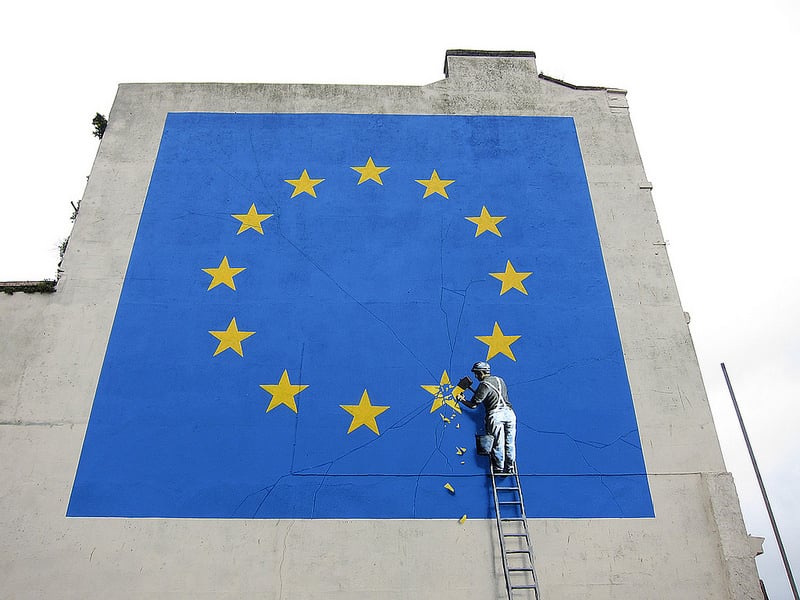
Photo: dullhunk on Visualhunt.com / CC BY
“Gutted”: heartbreak as UK blocked from European Capital of Culture
The European Commission has said Britain’s withdrawal from the European Union means participation in the 2023 title “will not be possible”.
The European Union has blocked the UK from competing for the European Capital of Culture 2023 title because of its withdrawal from the EU.
The Government has also been advised to discontinue the selection process for the five bidding cities – Belfast, Dundee, Nottingham, Milton Keynes and Leeds – “immediately”.
The DCMS said it is “deeply disappointed” with the decision and is in “urgent discussions” with the European Commission on the matter.
In a letter sent to the DCMS, obtained by European magazine POLITICO, the European Commission stressed Brexit prevents continued UK involvement in the competition.
“After consulting relevant services of the Commission, I would like to inform you that following its withdrawal from the European Union, the participation of the United Kingdom in the European Capital of Culture action will not be possible,” writes Martine Reichters, Director-General for Education and Culture at the European Commission.
She continues: “On the grounds of sound and responsible management of human and financial resources, the Commission considers that the selection process should be immediately discontinued.”
Shadow of uncertainty
The DCMS had warned, when launching the bidding process, that exit negotiations “could have a bearing on the UK’s participation” in the competition.
Despite uncertainty, the bidding cities ploughed ahead in the wake of Britain’s Brexit vote stressing the bid process alone would be beneficial for their cities.
Fears appeared to be allayed in December 2016 when Culture Secretary Karen Bradley formally launched the competition. Speaking at the time, Leader of Leeds City Council Judith Blake said the city had been ready to make a bid since 2014 and confirmed it had already invested £550k in the process.
The cities formally submitted bids at the end of last month, expecting a winner to be selected by 2018.
Leeds and Dundee both told AP they were currently seeking further clarification.
Chair of the Nottingham 2023 bid, Paul Russ said: “Our European Capital of Culture bid has brought Nottingham together over the last few months and regardless of any outcomes we will work to implement as many of the positive actions through the city’s Strategic Cultural Framework.
“The bid team will be liaising with the DCMS over the coming days and we hope the situation can be resolved positively so that we and the other bidding cities can present next week as planned.”
Reversing the decision
The DCMS expressed frustration that the Commission’s decision was taken after the competing UK cities had submitted their formal bids, and stressed that while the UK is leaving the EU, it is not leaving Europe.
“We want to continue working with our friends in Europe to promote the long-term economic development of our continent, which may include participating in cultural programmes,” a spokesperson said.
“We remain committed to working with the five UK cities that have submitted bids to help them realise their cultural ambitions and we are in urgent discussions with the Commission on the matter.”
The Creative Industries Federation said it was “dismayed” by the decision and praised the “enormous amount of time and energy” cities had invested in developing their bids.
“We are gutted to learn that the UK will not be allowed to host the European Capital of Culture as planned in 2023 after Brexit,” a spokesperson said. “This is despite the fact that cities in Europe that are outside the European Union have participated in the scheme historically.”
The Commission’s letter states the competition is not open “to third countries, except for candidate countries and EFTA/EEA countries under strictly defined conditions”.
The Creative Industries Federation continued: “People are working feverishly behind the scenes to reverse this decision and we will do everything in our power to make this happen.
“We hope the Prime Minister recognises that the European Capital of Culture scheme can help transform cities, delivering economic growth to the local area and making them better places to live and work.”
The 2023 title was going to be the third time the UK participated in the competition, which was launched in 1985. Glasgow held the title in 1990 and Liverpool in 2008.
AP contacted Milton Keynes and Belfast but had not heard back by the time of publication.
Join the Discussion
You must be logged in to post a comment.